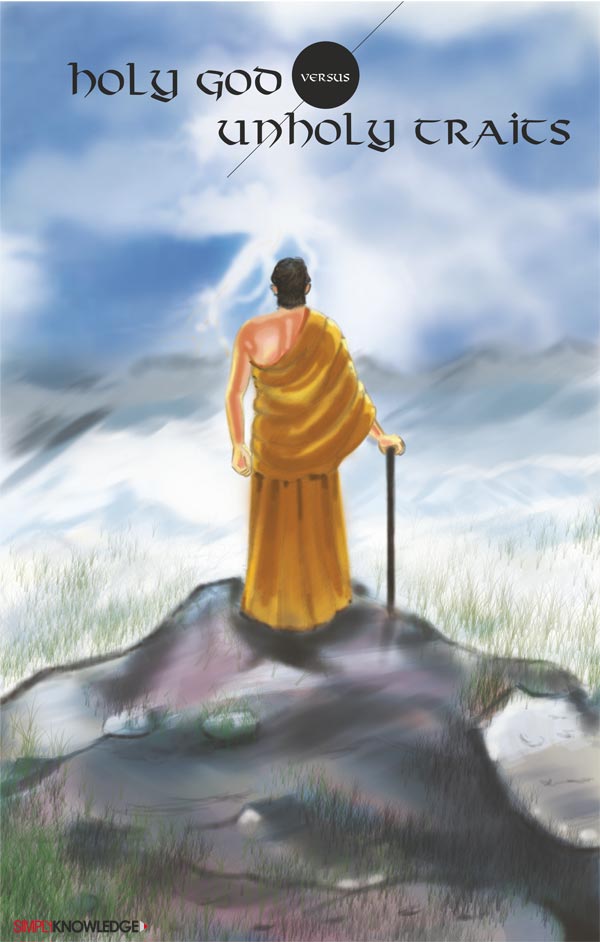



Introduction

“No human being will ever know the Truth. For even if they happen to say it unintentionally, they would be unaware they had done so,” said Xenophanes, a revered, ancient Athenian thinker credited as a pioneer on human psychology about knowledge. His writings are debated to date for their relevance to psychology. Modern day thinkers believe Xenophanes, with these words, made the first attempt to characterize what we commonly call ‘opinion’. Humans possess an inherent trait of expressing their views about a variety of topics, despite lacking the required knowledge. Occasionally, such opinions could be true but since they are not founded on any true knowledge, those expressing such views remain blissfully unaware they had stumbled upon the reality.
Although more acclaimed as a bard with philosophical and scientific inclinations, Xenophanes contributions to psychology remain unparalleled if viewed with the perspective of technological and other constraints during his era.
Life

Ancient Greek chronicler and historian, Diogenes Laertius, in his epic ‘Lives and Works of Eminent Ancient Philosophers’ depends on antique records to piece together Xenophanes’ life. He states, Xenophanes was born in Colophon, a minor town in Ionia and was the son of Dexius. The date of his birth is not known. Other historians aver, Xenophanes was born around 525BC, based on a corollary between his works and conditions prevailing in ancient Greece during his era.
Diogenes Laertius further states, Xenophanes was a Grecian who went into self exile, wrongly believing he would be persecuted after Harpagus of Medea invaded Ionia in 545BC. Harpagus, on the contrary was reputed for his passion for learning and treasured scholars. Yet, several communities committed suicide falsely fearing a tyrannical rule under Harpagus. Xenophanes’ family, including his wife and two sons also committed suicide and were buried by the thinker who dug their graves with bare hands, claim some historians. He fled to Sicily and found refuge in Zanlces and Catana, the two Greek hubs on the island.
Laertius admits that some records about Xenophanes are unverifiable such as being tried in a Grecian court for deriding Homer and Hesiod- two unparalleled litterateurs of ancient Greece or his capture by some obscure military who sold him as a slave. However, Xenophanes, states Laertius, in his own words claims he was “tossed around Greece from his age of 25 to 67 years similar to flotsam by tidal waves.”
These travails shaped Xenophanes’ skills as poet, scientist, astronomer and thinker since they provided him opportunities to dabble with myriad subjects- each more perplexing than the other. And these dexterous achievements eventually shot him to fame and remain recognized to date; over 2,500 years later.
Death

Xenophanes continued preaching his axioms till he was well over 90 years old. He was also a much sought after bard among the newer breed of Athenian aristocrats who preferred more sober eulogies as compared to their older counterparts who favoured mawkish ones. Historian and chronicler Diogenes Laertius states, Xenophanes died of old age in or around 475BC in Athens.
Legacy

Xenophanes continued preaching his axioms till he was well over 90 years old. He was also a much sought after bard among the newer breed of Athenian aristocrats who preferred more sober eulogies as compared to their older counterparts who favoured mawkish ones. Historian and chronicler Diogenes Laertius states, Xenophanes died of old age in or around 475BC in Athens.
Idolatry


Among the first works that propelled Xenophanes to eminence were his tacit poems on Greek more on religion. He subtly chastised Homer, Hesiod and other ancient Greek poets and writers for their depiction of God saying:
“If cattle and horses or lions had hands, or were able to draw with their limbs like men, horses would draw the forms of the gods like horses, and cattle like cattle. They would embody divine beings in their own likenesses.”
Xenophanes, says historian Diogenes Laertius, also flayed the depiction of gods as humans saying these were mere opinions. He elucidated this by saying, animals, if they could, would depict gods as their likenesses. He also draws a simile between ancient gods of Africa, which natives of that continent showed as possessing African features including a pug nose and dark skin as compared to Grecians, who portrayed their divine beings as possessing blonde hair and fair skin.
Xenophanes, through these differences, amply proved that humans express opinions without true knowledge- a pioneering work on human psychology. He further stated that the Africans and Grecians could be correct in their own limns of god but it is impossible to verify the same, given the innate limitations of mortals.
Several extant religions and cults explicitly prohibit idolatry or depiction of gods to prevent any contentious arguments.
Holy God versus Unholy Traits

Xenophanes vehemently belied Homer’s and Hesiod’s claims, enshrined through their poems and writings that Gods embodied “divine traits” that permitted theft, adultery, deception and other more scandalous behaviour, gruesome punishments, sodomy, and sarcastically, every other trait for which humans would stand accused of impiety.
Au contraire, Xenophanes propounded that gods possess great qualities that are exactly opposite to those attributed by Homer and Hesiod. His hypothesis was based on a simple fact: To be distinguished from humans and be revered as a supernatural, all pervading power, gods should be an epitome of unparalleled goodness and piety. “God is one, greatest of gods and men, not like mortals in body or thought,” he preached. Hence, in several circles of thought, Xenophanes is also considered as the Father of Monotheism, though his right to this title remains much debated, since many others have proposed the theory of a single god rather than multiple deities.
Xenophanes thus laid a solid foundation for several extant religions which, in various words state that god is an omnipresent, omnipotent force- the quintessence of goodness. This theory continues to help humans who are psychologically inclined to turn to a higher power to seek answers to questions that cannot be addressed by modern science. It helps humans find solace in times of great mental distress- a fact attested by every psychologist.
Hic Hic Hurray

Since times immemorial, alcohol related problems and alcoholism are a bane to every society, regardless of its development. Alcohol, ubiquitous at most parties since ancient times, is consumed with gusto. But often, drinkers violate the decorum or indulge in other abominable acts under the influence of this potent intoxicant.
Xenophanes is the first known thinker who attributed this to psychology and formulated a code of conduct for people attending raucous parties. He attributed improper behaviour at drinking parties to various shortcomings in the human nature- a fact proven by modern psychology. Xenophanes, perhaps to instil fear among drinkers, drew a parallel between misbehaviour under the influence of alcohol and sacrilege.
Xenophanes further said those who imbibe large volumes of alcohol and get inebriated violate the decorum, fail to honour gods and hence, pose a grave threat to the stability of their family, society and nation. Interestingly, this fact is conclusively proved by modern psychology and is used to treat alcoholics undergoing rehabilitation.
Censorship

Another first of the era, Xenophanes also holds the dubious distinction as the first thinker to propose censorship of poems and other literature- a practice that assumed diabolical proportions over centuries and continues to date in countries with oppressive regimes that persecute writers.
Xenophanes derided poets and authors who wrote grossly exaggerated encomiums on rulers, athletes, soldiers and gods, saying such panegyrics were fallacious and lacked wisdom or virtue and hence, they misled the masses. He rightly pointed out that humans depict deities in their own form, as highlighted by his writings about the differences in opinions of Africans – who believed god was dark skinned and Greeks, who portrayed god having a fair complexion.
Disgusted by poets and writers falsely approbating humans and gods, Xenophanes called for censorship of such works. Xenophanes was a poet and a litterateur himself and believed in free speech: He disliked only the grotesque exaggerations made by bards and authors while writing about heroes and gods.
Xenophanes call for censorship is a paradigm of what was to later become a grossly abused tool at the hands of dictators and oppressive regimes, since restricting information or using propaganda has a psychological impact and helps sway public opinion. It is unlikely that Xenophanes call for censorship went unheeded during his era when nobles paid bards to pen hackneyed adulations for self aggrandizement.
Knowledge

Xenophanes was the first to question in his own way: “How much knowledge can humans imbibe over their lifetime?” This question, despite the best efforts of modern science and well equipped, highly skilled psychologists, remains unanswered to date. Research into extant works reveal, Xenophanes believed that all human senses are deceptive and hence, “knowledge” obtained through sensory organs is at best, useless since it depends largely upon a plethora of benchmarks. He annotates, if humans never tasted honey, they would believe figs were the sweetest food on Earth.
Xenophanes said, opinions are also prone to a wide range of vagaries since circumstances or bellicose debates may sway them. Hence, opinions should be considered as “second knowledge” since it may portray a reality but lacks erudite basis.
Psychology of Xenophanes | 0 Comments >>
0 Comments
Leave Comment
Your email address will not be published. Required fields are marked.
